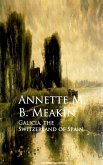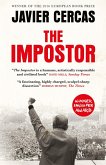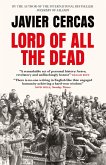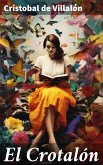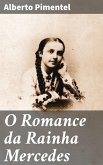In "Letters from Spain," Joseph Blanco White presents a thoughtful and introspective account of his experiences in Spain during the early 19th century. Written in the epistolary style, these letters blend vivid narrative with philosophical musings, capturing the essence of Spanish culture, politics, and society. The literary context of this work is enriched by the Romantic movement, characterized by an emphasis on individualism, emotional depth, and a critique of social norms. Blanco White's evocative prose and keen observations provide readers with a unique lens through which to view the complexities of Spanish life, as well as his own existential struggles reflecting the broader tensions of the period. Born in Spain to a family of mixed descent, Blanco White's multicultural background and liberal political beliefs shaped his worldview. His eventual exile from Spain due to political unrest and religious intolerance deeply influenced his writing. Experiencing the clash between tradition and modernity, his letters reveal a profound yearning for identity and understanding, drawing on his encounters to forge a narrative that transcends cultural barriers. Readers seeking both an engaging travelogue and a deep, contemplative exploration of Spain's societal undercurrents will find "Letters from Spain" an illuminating read. This work invites readers to reflect on the interplay between culture and identity, offering enduring insights into the human experience. In this enriched edition, we have carefully created added value for your reading experience: - A comprehensive Introduction outlines these selected works' unifying features, themes, or stylistic evolutions. - A Historical Context section situates the works in their broader era-social currents, cultural trends, and key events that underpin their creation. - A concise Synopsis (Selection) offers an accessible overview of the included texts, helping readers navigate plotlines and main ideas without revealing critical twists. - A unified Analysis examines recurring motifs and stylistic hallmarks across the collection, tying the stories together while spotlighting the different work's strengths. - Reflection questions inspire deeper contemplation of the author's overarching message, inviting readers to draw connections among different texts and relate them to modern contexts. - Lastly, our hand-picked Memorable Quotes distill pivotal lines and turning points, serving as touchstones for the collection's central themes.
Dieser Download kann aus rechtlichen Gründen nur mit Rechnungsadresse in A, B, BG, CY, CZ, D, DK, EW, E, FIN, F, GR, H, IRL, I, LT, L, LR, M, NL, PL, P, R, S, SLO, SK ausgeliefert werden.



